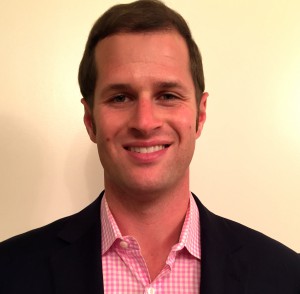Doctoral student Nicholas Goldenson conducts research as a member of the University of Southern California Health, Emotion, and Addiction Laboratory (USC-HEAL) and is a trainee in the USC Tobacco Center of Regulatory Science (USC TCORS). His research is focused on understanding the determinants of e-cigarette appeal and dependence to provide the federal government with comprehensive data that will inform regulatory policies.
Creating comprehensive regulatory policy can be a fraught process in government, especially in response to new technology and products. Politics, private business, consumers, and media all seek to influence legislative outcomes, resulting in a murky and less than ideal decision making environment. Where does government turn for cutting-edge research and vetted information?
USC TCORS is one of 14 tobacco regulatory science centers nationwide doing their part to ensure government regulators and decision-makers have comprehensive data on which to build evidentiary-based policies to protect the health and well-being of the American people. Third-year PhD student, Nicholas Goldenson, is a member of the USC team working to ensure that the Federal Food and Drug Administration has the critical information to inform their activities regarding a new regulatory challenge, e-cigarettes.
With the guidance of his adviser Dr. Adam Leventhal, Assistant Professor of Preventive Medicine and Psychology, and faculty in the Department of Preventive Medicine, Goldenson is exploring the role flavorings play in e-cigarettes and how they influence consumer appeal of the product. E-cigarettes are often touted as a “safer” alternative to cigarettes given that users are not inhaling smoke or tar. However, e-cigarettes are still a fairly new phenomenon and the long-term effects of inhaling nicotine-filled vapor are unclear. Goldenson and TCORS are using their research to look at the broader context of addiction and how this new product, particularly the use of flavorings, may enhance their appeal.
“I’ve always been fascinated by people and wanting to understand their behavior,” Goldenson states. This curiosity led him to earn a bachelor of arts in psychology from the University of California, Los Angeles in 2009. Post-graduation, he continued using his psychology and research skills for the benefit of other vulnerable populations, including as a health scientist specialist at the Veterans’ Administration West Los Angeles Healthcare System. Working with a multidisciplinary team, his work at the VA focused on research studies to provide better services for veterans with mental illnesses.
Goldenson loves doing research and wishes to continue in post-doctoral research after completing his PhD. But what Goldenson really appreciates both about his work experience and his research at USC TCORS is that it’s clear how his work is linked to implementation – one can understand the context in which the research will be used. “TCORS allows for a lot of great training and collaboration opportunities,” Goldenson and several of his colleagues have attended conferences in Washington, D.C. where they shared the results of their work. The center is interdisciplinary and while his research focuses specifically on the user experience of the product, another research team is examining how the use of social media advertising may influence product popularity.
Ultimately, TCORS and Goldenson understand that behavior, decisions, addiction, and human outcomes do not occur in a vacuum. Providing comprehensive data means viewing the details and finding the linkages in the big picture to provide better solutions for overall public health.

